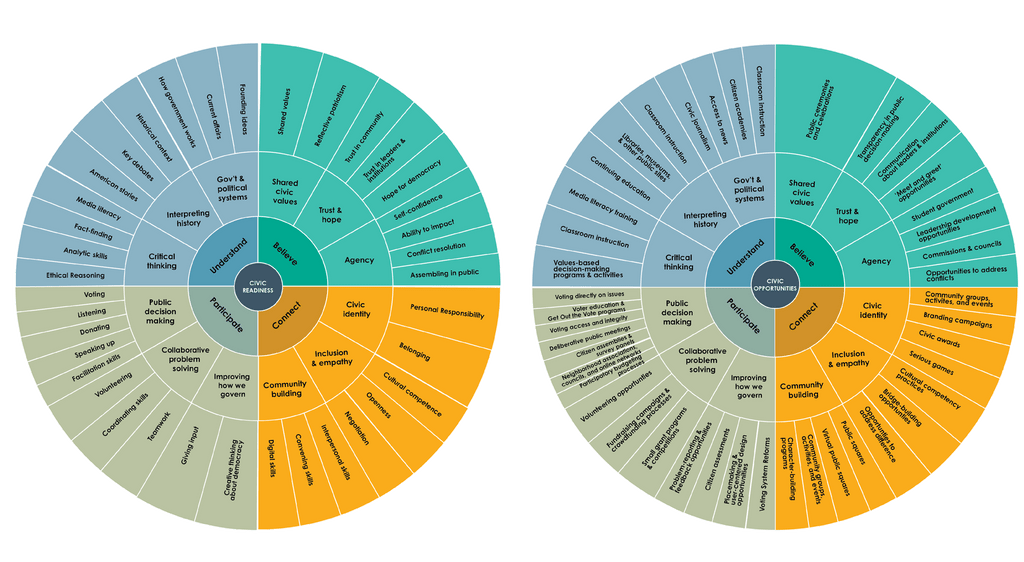Director’s Note, Spring ’23

Thanks to suggestions from some of you, I’m going to begin a new practice of regularly writing about new and useful resources from the field of higher education community and civic engagement. This term, I’m sharing new research on civic learning in higher education. “Mapping Civic Measurement: How are we assessing readiness and opportunities for an engaged citizenry?” is a 2023 report from the Institute for Citizens and Scholars formerly the Woodrow Wilson National Fellowship Foundation, which offers a “new framework for mapping civic readiness and opportunities, and a set of recommendations to develop field-wide measures.”
This framework seems especially salient given campus conversations about higher education’s call to invest in the attributes and practices needed to support democracy and engaged citizenship, notably those we observe in Carleton graduates such as ethical, thoughtful leadership on complex, thorny social issues. The authors essentially performed a national scan of civic learning initiatives across the American higher education landscape. They then synthesized what they found and mapped four main domains of civic opportunities and areas in which students need to develop civic readiness. Those are opportunities and readiness to
- Connect (community building, inclusion & empathy, civic identity)
- Participate (public decision-making, collaborative problem-solving, improving how we govern)
- Understand (critical thinking, interpreting history, government & political systems) and
- Believe (shared civic values, trust & hope, agency).
What I find useful about this framework is that it a) suggests how the work of OIL, the Poli Sci department, and the CCCE, for instance, can all contribute to students’ civic readiness, and b) it could help us identify areas of strength and those we’d like to make more robust.
If you’re interested, look over the civic opportunities wheel below. Where, if anywhere, do you see your work at the college making a contribution?
I’d be more than happy to have coffee with anyone who would like to talk about this more.
-Sinda Nichols (snichols2@)
Director, Center for Community and Civic Engagement (CCCE)